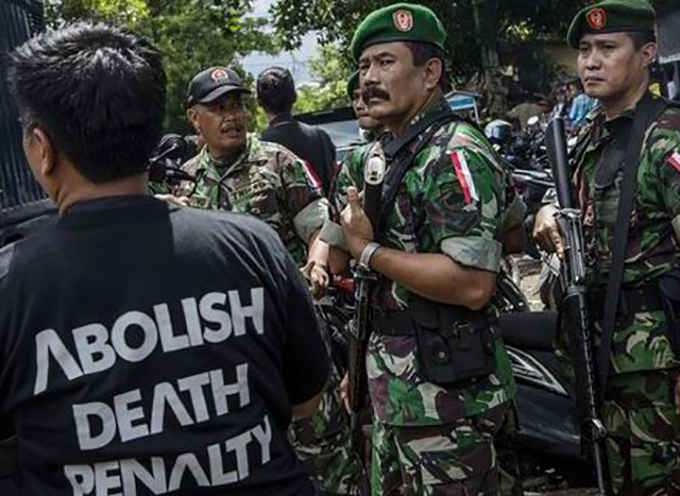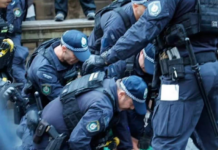By Haeril Halim in Jakarta and Margareth S. Aritonang in Oslo
As a third round of executions nears, Indonesia’s President Joko “Jokowi” Widodo has commemorated the UN’s International Day against Drug Abuse and Illicit Trafficking last weekend by taking the moment to bolster his tough stance on traffickers.
In a fiery appeal, Jokowi instructed the National Police and the National Narcotics Agency (BNN) to pursue, arrest and “smash” small, medium or big-time drug dealers operating in the country and even “shoot them on sight if existing law allowed it”, to tell the world that Indonesia was serious in its fight against drugs.
“If [shooting on sight] were allowed by the law then I would have ordered the National Police and the BNN chief to do so, but luckily it is not. This extraordinary crime has affected not only adults, but also elementary school and kindergarten-aged children,” Jokowi said during the commemoration ceremony.
Narcotics are a chronic problem for the country with an estimated 5.1 million drug abusers.
In the wake of a string of prison riots in the country, the Law and Human Rights Ministry raided the country’s penitentiaries earlier this year and found that only 101 of a total 477 prisons were free of drugs.
Overcrowded prisons and lax oversight have turned prisons into drug-infested confinements in which many inmates fall into addiction.
Strong stance
Jokowi has taken a strong stance against drug trafficking ever since he took office, commanding the executions of 14 convicts who were mostly drug dealers.
Playing down criticisms of his tough drug law, the government has announced a plan to execute 18 death-row inmates after Idul Fitri, which will fall on July 6 this year. It has also planned to execute another 30 convicts next year.
The government has recorded that out of the total 152 convicts currently awaiting execution, 58 are drug offenders.
Scores of high-ranking officials have also been arrested for drug abuse in the past several years.
“Drug dealers always find ways to dupe law enforcers by exploiting parties that they would not suspect, such as women and children, as couriers. We have to stop this and redeclare Indonesia’s war against drugs,” said Jokowi.
Jokowi has conducted a number of bilateral visits to countries that strongly rejected his firm stance on executing drug traffickers, including Germany, where he was advised to stop such cruel punishment, but Jokowi has remained resolute to his commitment to Indonesia’s fight against drugs.
However, the government has not completely slammed the door shut for countries trying to save their citizens from Indonesian capital punishment.
Successful appeals
Last year, the government called off the executions of French national Serge Atlaoui and Philippine national Mary Jane Veloso, both convicted drug traffickers, following appeals from their respective governments.
Criticisms of the government’s harsh punishment on drug-related crimes stem mostly from the country’s perceived weak judicial system.
An investigation by the Commission for Missing Persons and Victims of Violence (Kontras), Imparsial and the Community Legal Aid Institute (LBH Masyarakat) has found irregularities in the legal process of seven death-sentence cases.
Alleged irregularities include the absence of an independent interpreter for convicted foreigners during the legal process, a lack of competent legal representatives and corruption. The issue of a vulnerable legal process was also highlighted during a recent congress on capital punishment in Oslo.
“Many cases have proved that the death penalty was imposed on the innocent. This has happened even in countries with strong legal systems, such as the US. Imagine what happens in places where the legal system has collapsed.
In cases where personal dislikes and political division exists, decisions could be influenced by personal feeling and not based on law,” said the EU Special Representative for Human Rights, Stavros Lambrinidis.
Lambrinidis called for more countries to join the 150 states that have abolished the death penalty, arguing that such a punishment not only failed to deter criminals, but also destroyed the dignity of those who impose the punishment.
“Think about your dignity. I refuse to kill a killer because I refuse to allow him or her to turn me into a killer. It is my human dignity that I am defending. I will not bloody my hands because of what they did,” he said.






































